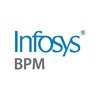Assistant Accountant Executive
10+ Assistant Accountant Executive Interview Questions and Answers

Asked in Infosys BPM

Q. What are debit notes and credit notes, and why are they issued?
Debit note and credit note are financial documents used to record adjustments in accounts payable and accounts receivable.
Debit note is issued when a buyer returns goods to a seller or when there is an overcharge in the invoice amount.
Credit note is issued when a seller returns goods to a buyer or when there is an undercharge in the invoice amount.
Debit note increases the buyer's accounts payable and decreases the seller's accounts receivable.
Credit note decreases the buyer's...read more

Asked in Infosys BPM

Q. How many T-Codes do you know in SAP?
I am familiar with a variety of T-Codes in SAP, including but not limited to FI, CO, MM, and SD modules.
I am familiar with T-Codes related to Financial Accounting (FI) such as F-02 (Enter G/L Account Posting) and F-30 (Post with Clearing)
I am knowledgeable about Controlling (CO) T-Codes like KSB1 (Cost Centers) and KSB2 (Cost Elements)
I have experience with Material Management (MM) T-Codes like MIGO (Goods Movement) and ME21N (Create Purchase Order)
I am also familiar with Sal...read more

Asked in Infosys BPM

Q. What do you know about accounting fundamentals?
Accounting fundamentals are the basic principles and concepts that guide the preparation and presentation of financial statements.
Accounting equation (Assets = Liabilities + Equity)
Double-entry accounting
Accrual vs. cash basis accounting
Revenue recognition principles
Matching principle
Conservatism principle
Historical cost principle
Materiality principle

Asked in Genpact

Q. What is accounts payable?
Accounts payable is the amount of money a company owes to its suppliers or vendors for goods or services purchased on credit.
Accounts payable represents the short-term debt a company owes to its suppliers.
It is listed as a liability on the company's balance sheet.
Accounts payable is typically paid within a certain period, often 30, 60, or 90 days.
Examples include invoices from suppliers for inventory purchases, utilities, or services rendered.
Managing accounts payable effecti...read more

Asked in Genpact

Q. What is depreciation?
Depreciation is the allocation of the cost of a tangible asset over its useful life.
Depreciation is a non-cash expense that reduces the value of an asset over time.
It reflects the wear and tear, obsolescence, or decrease in value of the asset.
Common methods of calculating depreciation include straight-line, double declining balance, and units of production.
Example: A company purchases a delivery truck for $50,000 with a useful life of 5 years. Using straight-line depreciation...read more

Asked in Infosys BPM

Q. What is the PTP (Procure-to-Pay) process?
PTP Process stands for Procure-to-Pay Process, which involves the entire cycle of purchasing goods or services, receiving them, and paying for them.
PTP Process starts with the creation of a purchase order (PO) based on the requirements of the organization.
Once the goods or services are received, the receiving department matches the received items with the PO to ensure accuracy.
After verification, the invoice is processed for payment, which involves approval from relevant stak...read more
Assistant Accountant Executive Jobs


Asked in Novotech

Q. Weakness strength Tell about your self
I am a detail-oriented and organized individual with strong analytical skills and a passion for numbers.
Detail-oriented and organized
Strong analytical skills
Passion for numbers

Asked in Infosys BPM

Q. How do you record the entry for the provision for bad debts?
Provision for bad debts is an estimated amount set aside by a company to cover potential losses from customers who may not pay their debts.
Provision for bad debts is recorded as a contra asset account on the balance sheet.
It is typically calculated as a percentage of accounts receivable or based on historical data of bad debts.
The entry for provision for bad debts involves debiting the bad debt expense account and crediting the provision for bad debts account.
For example, if ...read more
Share interview questions and help millions of jobseekers 🌟


Asked in Genpact

Q. What is the P2P cycle?
P2P cycle stands for Procure to Pay cycle, which is the process of obtaining goods or services from a vendor and paying for them.
P2P cycle involves requisitioning, purchasing, receiving, and paying for goods or services.
It starts with a purchase requisition, followed by purchase order creation, goods receipt, invoice verification, and payment processing.
Efficient P2P cycle management helps in controlling costs, improving vendor relationships, and ensuring timely payments.
Exam...read more

Asked in TCS

Q. What is your CTC?
My current CTC is $50,000 per year.
My current CTC is $50,000 per year
I am currently earning $50,000 annually
My current salary package is $50,000 per annum

Asked in Infosys BPM

Q. Pivot table in ms excel
A pivot table in MS Excel is a powerful tool used to summarize and analyze large amounts of data.
Pivot tables allow you to reorganize and summarize selected columns and rows of data in a spreadsheet.
You can easily create pivot tables by selecting the data you want to analyze and then inserting a pivot table.
Pivot tables can help you quickly analyze trends, patterns, and relationships within your data.
You can also use pivot tables to create charts and graphs based on your summ...read more
Interview Questions of Similar Designations
Interview Experiences of Popular Companies






Calculate your in-hand salary
Confused about how your in-hand salary is calculated? Enter your annual salary (CTC) and get your in-hand salary


Reviews
Interviews
Salaries
Users










